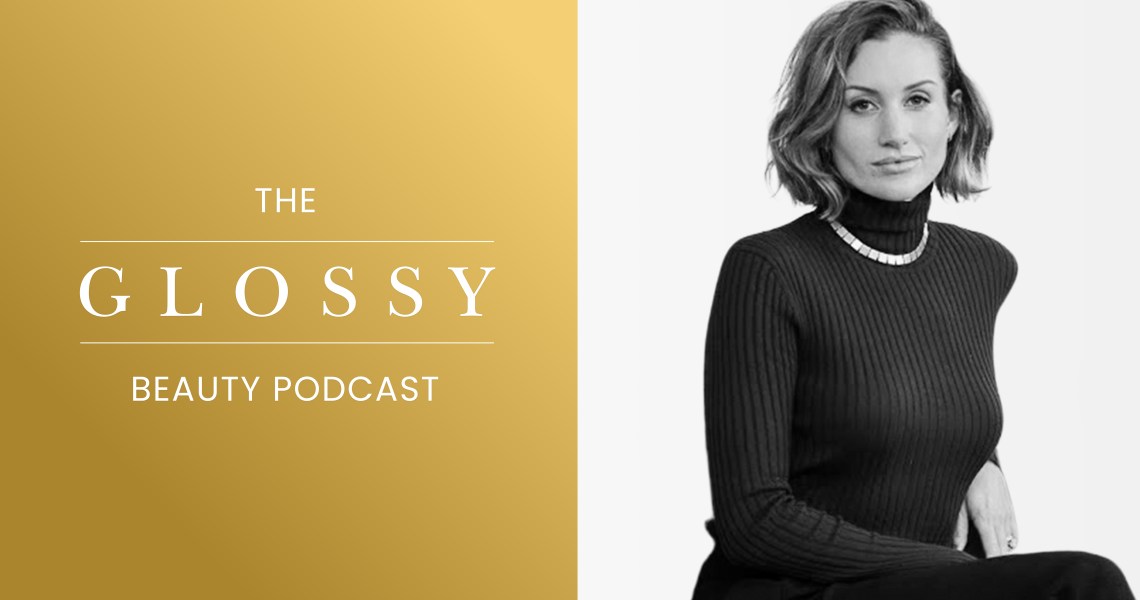Subscribe: iTunes | Stitcher | Google Play |Spotify
When Katherine Power co-founded fashion and lifestyle brand Who What Wear in 2006, she wanted to democratize fashion. Now she is taking on clean beauty with a new brand, Versed.
“When [Hillary Kerr] and I started Who What Wear, which is our fashion brand, the idea was to really make fashion and style accessible to women everywhere,” said Power. “I felt there was an opportunity to do that in skin care, as well. Through my job, I’m given access to the top experts in beauty and wellness, whether it’s the best celebrity facialist or makeup artist. I’m able to buy or am often gifted these products by brands with really expensive formulations from all over the world. I just felt like that wasn’t fair to the rest of America, not to have access to this kind of thing.”
Just this week, Versed launched in 1,400 doors around the country, with an assortment of 19 different products, all under $20. The brand is currently sold both in Target stores and on a direct-to-consumer brand site, which according to Power, will be focused on replenishment orders and education.
On this week’s episode of The Glossy Beauty Podcast, beauty editor Priya Rao sits down with Powers, the co-founder and CEO of Who What Wear and Versed, to discuss the impetus for launching the new beauty brand, the way consumer data played a role in its development and the reason Target is the perfect wholesale partner. Edited highlights below.
Building a brand on consumer input
“When we start to build a new brand, it basically starts with a hypothesis. We have an idea, based on speaking to these consumers on a daily basis, of what’s missing. So we had an idea that this might be an opportunity, and from there, we first go and ask our community specifically, and then we validate the hypothesis by going to a national sample of consumers. We tend to have the tastemakers in our community, who may be a little ahead of the curve, so we go out to a national sample of women to make sure it’s not just this inner circle of women that are asking for this. After that, everything is tested — from the visuals of the brand to products names and price points — across these two different audience buckets. This is done through everything from focus groups to online surveys, to our private Facebook group with highly engaged skin-care enthusiasts. We looked at the data from over 16 million women across our entire audience, and 7,000 people actively participated in the creation of the brand.”
The need for approachable clean beauty
“We saw a few patterns [in our research]. For one thing, the consumers were very confused when it came to skin care. They felt brands tended to focus on one main concern around skin, whether it be anti-aging or acne. But what we really found was that most people have a combination of issues, and they don’t know how to use the skin-care products together and what products are right for their specific concerns. They also felt like they were paying far too much for skin care, so not understanding if you’re paying for the component that’s a really cool design or the actual formulation. Also, why something would be four-times the price at a different store than it would be at their local drugstore or pharmacy. They also really wanted cleaner products. If you’re a prestige shopper and you have a little bit of money, and you actually have a Sephora in your town, you can easily access that stuff. But if you don’t have a Sephora near you, and you don’t have that kind of disposable income, it’s really hard to find something clean.”
Finding the perfect wholesale partner
“For us, we always chose one significant launch partner for the brands we come out with, and ultimately, we’ll scale beyond that after a certain window of time. We considered a few partners for the launch of Versed — everyone from a few major drugstores, to the more prestige retailers. But Target, first of all, has been an amazing partner to us. We worked with them on the Who What Wear collection, as well as on their brand JoyLab, which we helped to service. They know how to launch new brands, and not every brand knows how to do that. They really get behind the brands in such a way that is important at this early stage. It was those factors, as well as the fact that they were able to commit a lot of real estate to us. I think a lot of brands are trying to expand in beauty and wellness; they know it’s an important category. But Target is doing a great job, because they’re taking these big bets and giving out so much real estate. You really need that to be able to educate people on the brand and the category.”




